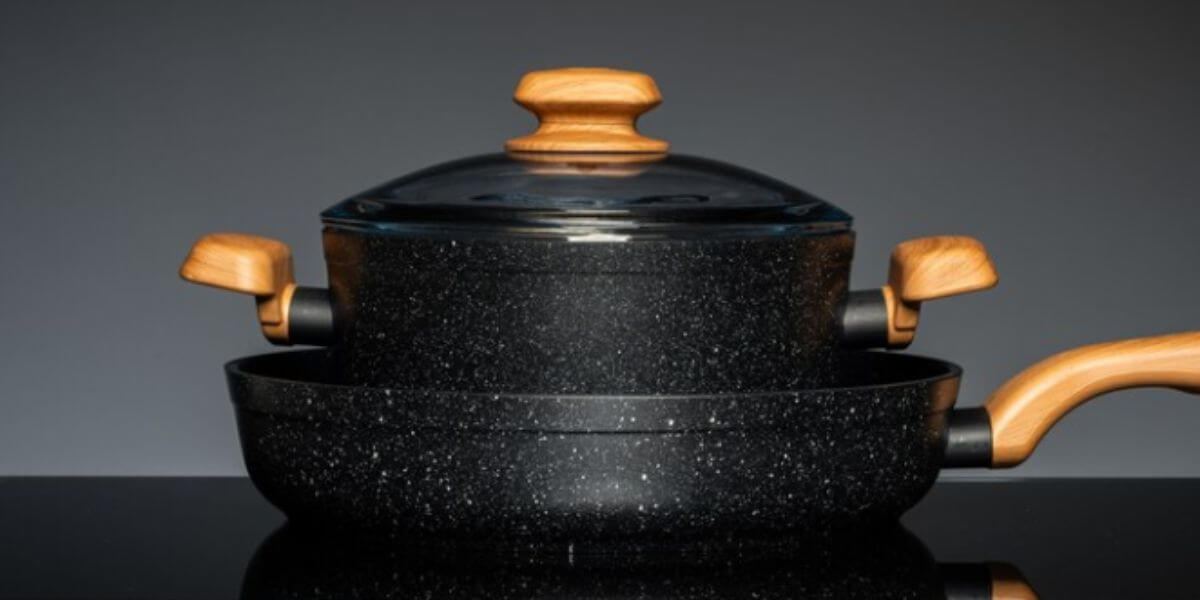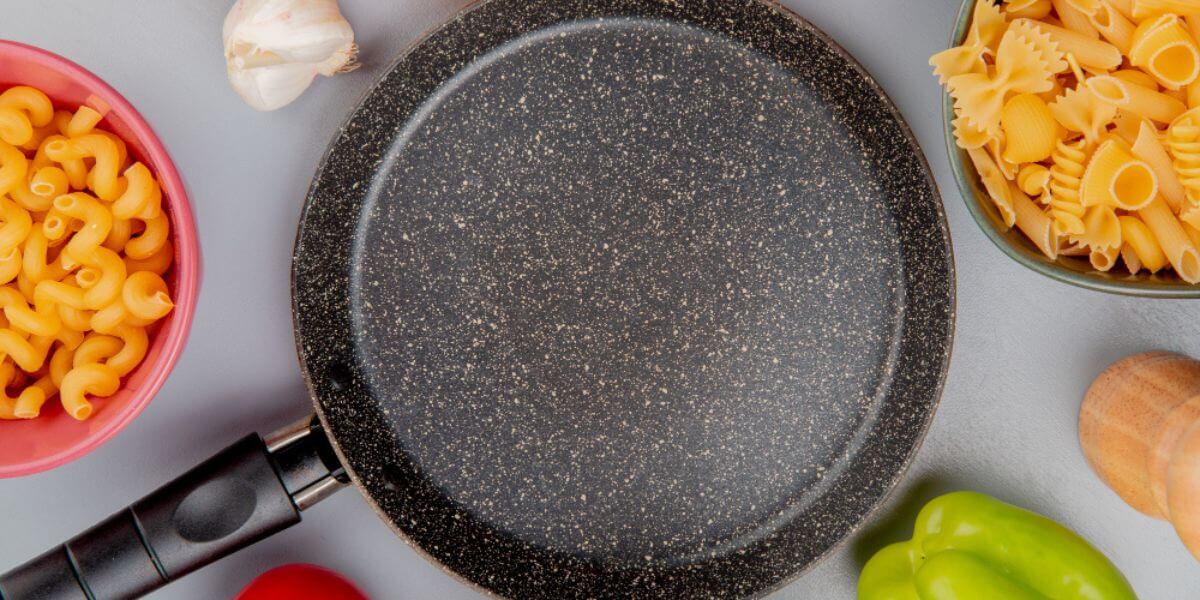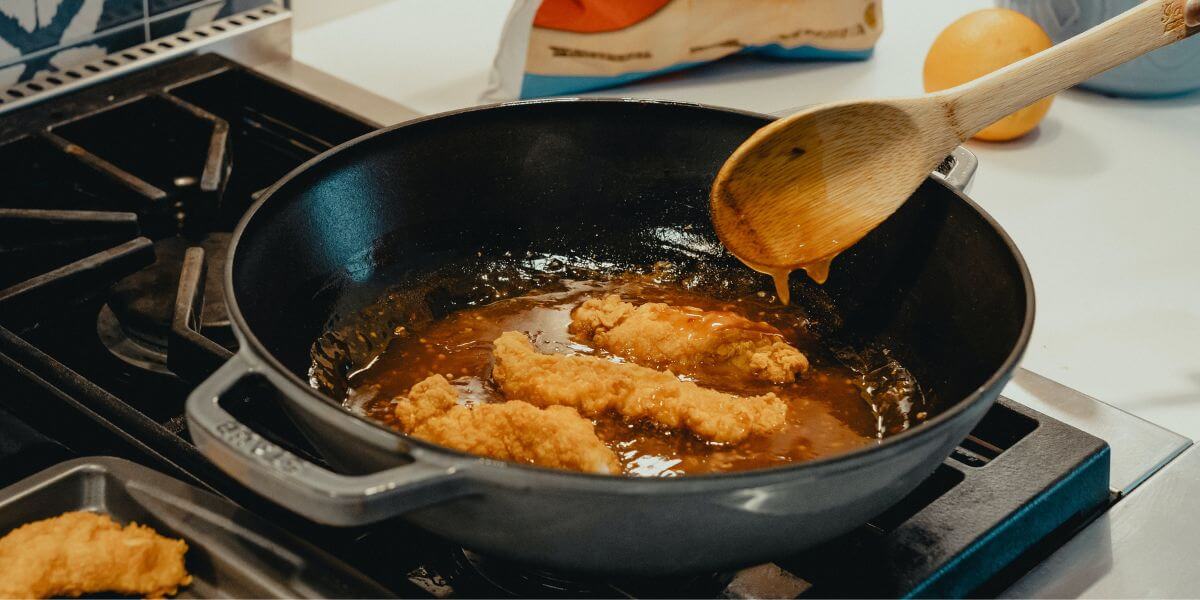Enamel vs Cast Iron Dutch Oven: Choose the Best One


A Dutch oven is an essential tool for amateur and professional chefs when cooking versatile and flavorful meals. However, choosing between an enamel Dutch oven and a cast iron Dutch oven can take time and effort. In this blog post, we will explore the features, advantages, and disadvantages of both types, enabling you to make an informed choice that suits your culinary needs.
What is a Dutch Oven?
Before we delve into the differences between enamel and cast iron Dutch ovens, let’s first understand what a Dutch oven is. A Dutch oven is a heavy, thick-walled cooking pot with a tight-fitting lid known for its exceptional heat retention and distribution. It is commonly used for slow cooking, braising, baking, and even frying due to its ability to maintain a steady and even temperature.
Enamel Dutch Oven
An enamel Dutch oven is made from cast iron but coated with a smooth and glossy finish. This coating adds color to your kitchen and provides several benefits. The enamel coating prevents rusting and eliminates the need for seasoning the pot. It also makes cleaning easier and prevents food from sticking to the surface.

Pros of Enamel Dutch Oven
Easy to Clean: The smooth enamel surface is non-stick, making cleanup a breeze.
Versatile: Enamel Dutch ovens can be used on various stovetops, including gas, electric, and induction.
Attractive Appearance: The vibrant colors and glossy finish of enamel Dutch ovens make them an eye-catching addition to any kitchen.
Rust Prevention: The enamel coating protects the underlying cast iron from rusting.
Cons of Enamel Dutch Oven
Fragile Coating: The enamel coating can chip or crack if mishandled or exposed to extreme temperature changes.
Limited High Heat Usage: Enamel Dutch ovens are not recommended for exceptionally high-heat cooking or broiling.
Three Recommended Enamel Dutch Ovens to Buy
Le Creuset Signature Enameled Cast Iron Dutch Oven
Le Creuset Dutch ovens are known for their exceptional quality and performance. Made of cast iron with an enamel coating, they provide excellent heat distribution and retention. They come in various attractive colors and sizes to suit different cooking needs. Le Creuset Dutch ovens are compatible with all stovetop types and are oven-safe. However, they can be expensive and heavy, requiring regular maintenance to keep the enamel coating in good condition.
PROS
CONS
Cuisinart Chef’s Classic Enameled Cast Iron Dutch Oven
Cuisinart Chef’s Classic Dutch ovens are a budget-friendly choice that delivers reliable performance. Their cast iron construction and enamel coating offer good heat distribution and retention. Available in various sizes and colors, they can cater to different cooking needs. Like other enamel Dutch ovens, they are oven-safe and compatible with all stovetop types. However, some users have reported issues with the enamel coating chipping or cracking, and they are heavier than non-enameled options, requiring proper care and maintenance.
PROS
CONS
Lodge Enameled Cast Iron Dutch Oven
Lodge Dutch ovens provide a more affordable option without compromising on quality. They offer excellent heat distribution and retention, thanks to their cast iron construction and enamel coating. While they have a more limited color selection than other brands, they are oven-safe and compatible with all stovetop types. Some users have reported issues with the enamel chipping over time, and they are heavier than non-enameled cast iron Dutch ovens.
PROS
CONS
Cast Iron Dutch Oven
A cast iron Dutch oven is made entirely of cast iron, providing unmatched heat retention and durability. It has been a classic choice for generations and is known for its ability to develop a natural non-stick surface over time through seasoning.


Pros of Cast Iron Dutch Oven
Excellent Heat Retention: Cast iron retains heat exceptionally well, ensuring even cooking and flavorful results.
Long-lasting: With proper care, a cast iron Dutch oven can last for generations, becoming a cherished family heirloom.
Natural Non-Stick Surface: With regular use and seasoning, a cast iron Dutch oven develops a naturally non-stick surface over time.
Suitable for High Heat: Cast iron Dutch ovens can withstand high temperatures, making them ideal for searing and browning.
Cons of Cast Iron Dutch Oven
Seasoning Required: Cast iron Dutch ovens need regular seasoning to maintain their non-stick surface and prevent rust.
Heavyweight: Cast iron Dutch ovens are considerably heavier than enamel Dutch ovens, which may make them more challenging to handle.
Three recommended Cast Iron Dutch Ovens to Buy
Lodge Cast Iron Dutch Oven
Lodge Cast Iron Dutch ovens are renowned for their affordability and durability. Made from solid cast iron, they offer excellent heat retention and distribution, ensuring even cooking. They are versatile and can be used on stovetops or in ovens. While they require seasoning and ongoing maintenance to keep them in good condition, they are an excellent value-for-money option. However, they are heavier than other materials and lack the aesthetic appeal of enamel-coated Dutch ovens.
PROS
CONS
Le Creuset Signature Cast Iron Dutch Oven
Le Creuset is a trusted brand known for its exceptional quality and craftsmanship. Their cast iron Dutch ovens feature a beautiful and vibrant enamel coating, enhancing their appearance and providing excellent heat retention and distribution. They are suitable for all stovetop types and oven-safe. However, they come at a higher price than other options and require careful handling to prevent chipping or scratching the enamel coating.
PROS
CONS
Staub Cast Iron Dutch Oven
Staub cast iron Dutch ovens are highly regarded for their superior heat retention and even cooking. They are made from durable cast iron and feature an enamel coating that resists chipping. Staub offers a range of unique and attractive design options, adding aesthetic appeal to the cooking experience. These Dutch ovens are compatible with all stovetop types, including induction, and can also be used in the oven. However, they are more expensive than other cast iron Dutch ovens and require regular maintenance and seasoning.
PROS
CONS
Key Differences between Enamel and Cast Iron Dutch Ovens
While both enamel and cast iron Dutch ovens share similar features, they have distinct differences that may impact your cooking preferences. Here are some key differences to consider:
Material: Enamel Dutch ovens have a cast iron core coated with enamel, while cast iron Dutch ovens are entirely made of cast iron.
Heat Distribution: Enamel Dutch ovens have slightly better heat distribution due to the enamel coating, while cast iron Dutch ovens have excellent heat retention.
Maintenance: Enamel Dutch ovens are easier to clean and require less maintenance than cast iron Dutch ovens, which need regular seasoning.
Versatility: Enamel Dutch ovens can be used on various stovetops, while cast iron Dutch ovens are suitable for all heat sources, including ovens and open fires.
Appearance: Enamel Dutch ovens offer a range of vibrant colors and a glossy finish, while cast iron Dutch ovens have a classic, rustic appearance.
Factors to Consider when Choosing Between Enamel vs Cast Iron Dutch Oven
To help you make an informed decision, consider the following factors when choosing between enamel and cast iron Dutch ovens:
Cooking Preferences: Determine the types of dishes you frequently prepare and whether you prioritize heat retention, even cooking, or easy cleanup.
Maintenance Effort: Consider the time and effort you are willing to invest in seasoning and maintaining your Dutch oven.
Weight: Assess your ability to handle a heavy pot and whether the importance is crucial for you.
Budget: Evaluate your budget and choose a Dutch oven that aligns with your financial considerations.
Aesthetics: Consider the appearance and color options best suit your kitchen decor.
Maintenance and Care (Enamel vs Cast Iron Dutch Oven)
Whether you choose an enamel or cast iron Dutch oven, proper maintenance is essential to prolong its lifespan. Here are some general tips:
Enamel Dutch Oven: Avoid using metal utensils that may scratch the enamel surface. Hand wash with gentle dish soap and a non-abrasive sponge.
Cast Iron Dutch Oven: Regularly season the pot to maintain the non-stick surface. Avoid using harsh detergents or abrasive scrubbers. Dry thoroughly to prevent rust.
Best Uses for Enamel and Cast Iron Dutch Ovens
Both enamel and cast iron Dutch ovens have their strengths in various cooking scenarios. Here are some recommendations for their best uses:
Enamel Dutch Oven: Ideal for soups, stews, braises, and slow-cooking dishes that require long, gentle simmering.
Cast Iron Dutch Oven: Perfect for dishes that require high heat, such as searing, frying, baking bread, and roasting meats.
Conclusion
In the battle of enamel vs cast iron Dutch ovens, both options offer unique benefits that cater to different cooking preferences. Enamel Dutch ovens provide easy maintenance, versatility, and attractive aesthetics. On the other hand, cast iron Dutch ovens excel in heat retention, durability, and natural non-stick properties. Consider your cooking needs, maintenance expectations, and personal style before choosing.
Frequently Asked Question
Can I use an enamel Dutch oven in the oven?
Yes, enamel Dutch ovens are oven-safe and can withstand high temperatures.
Do I need to season an enamel Dutch oven?
Can I use a cast iron Dutch oven on an induction cooktop?
Yes, cast iron Dutch ovens are suitable for induction cooktops and all other heat sources.
What is the price range for enamel and cast iron Dutch ovens?
The price range can vary depending on the brand and size, but enamel Dutch ovens are generally more expensive.
Can I wash a cast iron Dutch oven with soap?
It is recommended to avoid using soap on a cast iron Dutch oven as it may strip away the seasoning.





